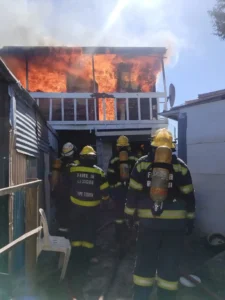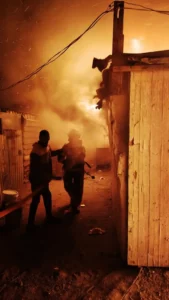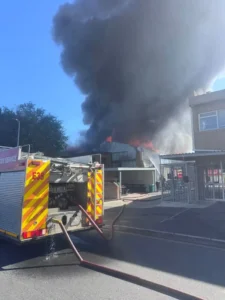Cape Town: The Fire and Rescue Service switched its focus from summer to winter and presented a review of the last three winters shows with an increase in responses to motor vehicle accidents, fewer structural fires and the most incidents that happened between 6:00 p.m. to 6:00 a.m.
Reportedly, the firefighters kept up from dusk ’til dawn as the Fire and Rescue Service of the City of Cape Town faces challenges year-round the nature of which changes by season.
In summer, the vegetation fires dominate. And in winter, the two standout categories are structural fires and motor vehicle accidents.
Considering this, Member of the Mayoral Committee for Safety and Security – Alderman JP Smith said that the downturn in fires is a positive step, which means a little to families and communities who are affected by these disasters.
The statistics also show that July tends to have the highest number of structural fires, and that is the time when temperatures plummet and the use of heaters and other appliances increase, so this is a critical reminder to all about fire risks and the need for vigilance.
Smith added that the City of Cape Town continues to invest in its Fire and Rescue Service so that they can respond quickly and effectively to people in their time of need. However, fire prevention begins in the home, so he appealed that this winter is to hash out a family emergency plan, be alert to the dangers of various heating and cooking appliances and steer clear of open flames when you have been drinking.
A review of winter statistics for the past three seasons were shared, that noted:
- A decline in the number of structural fires from 2129 in 2022 to 1748 in 2024.
- An increase in responses to motor vehicle accidents from 1883 in 2022 to 2147 in 2024.
- On average, 60% of fires happen between 6:00 p.m. and 6:00 a.m.
- On average, 33% of motor vehicle responses are between 6:00 p.m. and 00:00 midnight.
The Safety and Security team of the City of Cape Town urged people to help in reducing the risk of fires, by keeping matches and lighters out of children’s reach. Cut candles in half to prevent them falling over and use a candle holder.
It is advised to not smoke in bed. If you can afford it, keep a fire extinguisher in your home; maintain it annually and learn how to use it. Keep a bucket of sand in the kitchen if you don’t have an extinguisher; throwing sand over a small fire, especially oil, can help contain it before it gets out of control.
Also, it is suggested to keep a garden hose rolled up and ready in case of fire. Where possible, have more than one exit point from your house. Make an escape plan that the whole family knows about and can follow.




